
Find Help
More Items From Ergsy search
-

What are the common symptoms of Crohn's disease?
Relevance: 100%
-

Is there a cure for Crohn's disease?
Relevance: 79%
-

Is Crohn's disease contagious?
Relevance: 79%
-
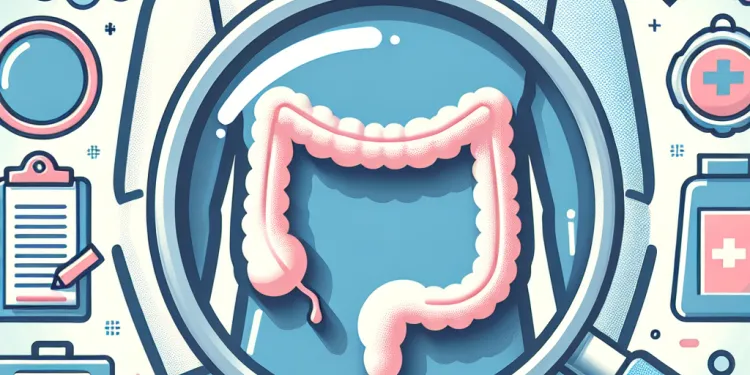
How is Crohn's disease diagnosed?
Relevance: 76%
-
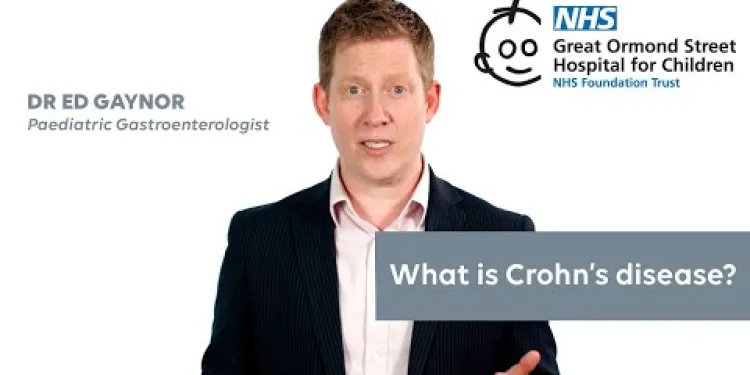
What is Crohn’s disease and how is it treated?
Relevance: 75%
-
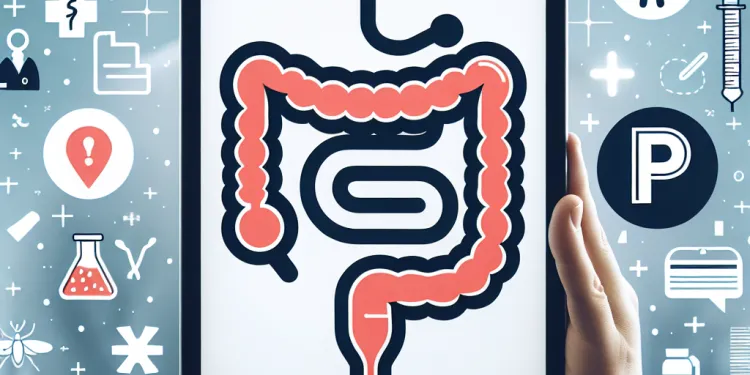
Is surgery necessary for Crohn's disease?
Relevance: 74%
-
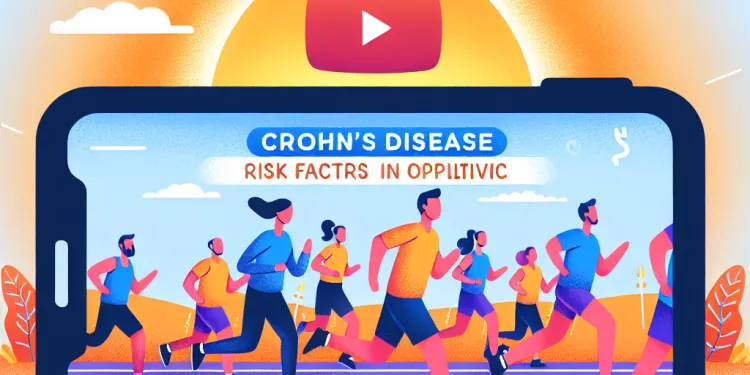
Who is at risk of developing Crohn's disease?
Relevance: 73%
-

Can children develop Crohn's disease?
Relevance: 72%
-
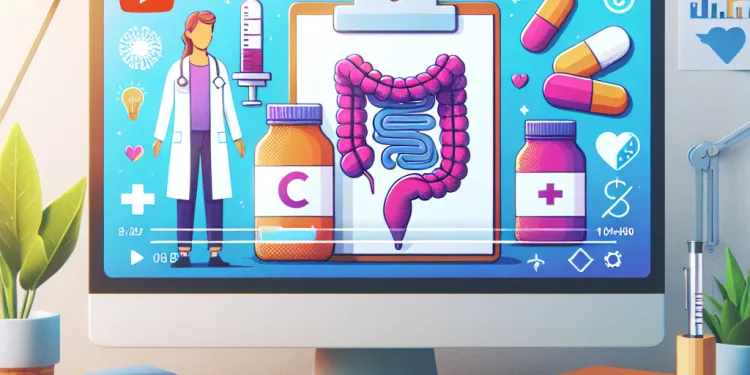
What treatments are available for Crohn's disease?
Relevance: 72%
-

What is the best diet for Crohn’s disease?
Relevance: 71%
-
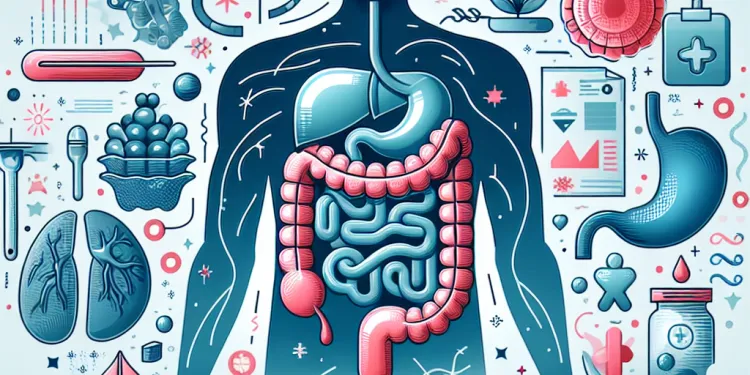
Are there any complications associated with Crohn's disease?
Relevance: 71%
-
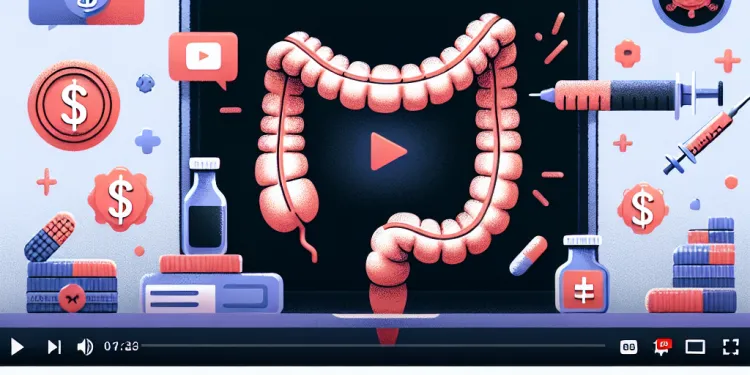
What causes Crohn's disease?
Relevance: 71%
-

Can stress make Crohn's disease worse?
Relevance: 69%
-
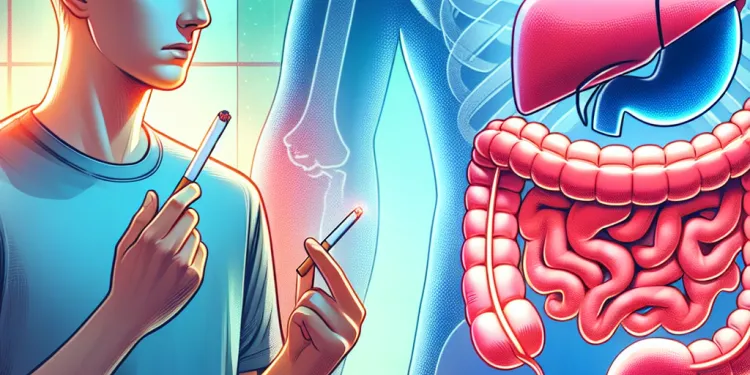
How does smoking affect Crohn's disease?
Relevance: 69%
-

What dietary changes can help manage Crohn's disease?
Relevance: 67%
-

What support is available for people with Crohn's disease in the UK?
Relevance: 65%
-

Infliximab infusion (Remicade) for Crohns Disease at Addenbrookes NHS hospital
Relevance: 57%
-

What are common symptoms of Lyme disease?
Relevance: 55%
-
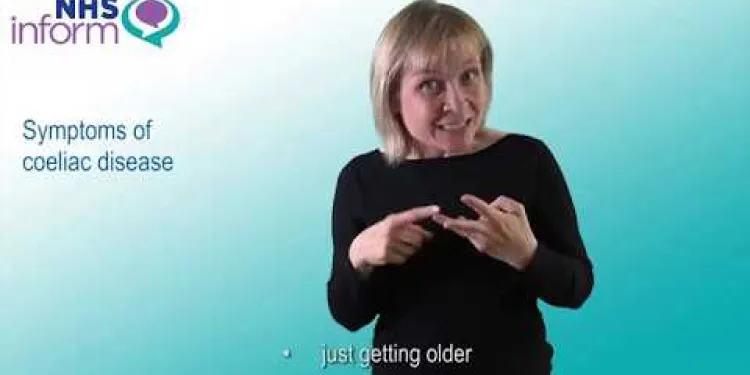
Symptoms of coeliac disease
Relevance: 47%
-

What are the symptoms of Huntington's disease?
Relevance: 43%
-

How common is Alzheimer's disease in the UK?
Relevance: 42%
-

What are the symptoms of sickle cell disease?
Relevance: 42%
-
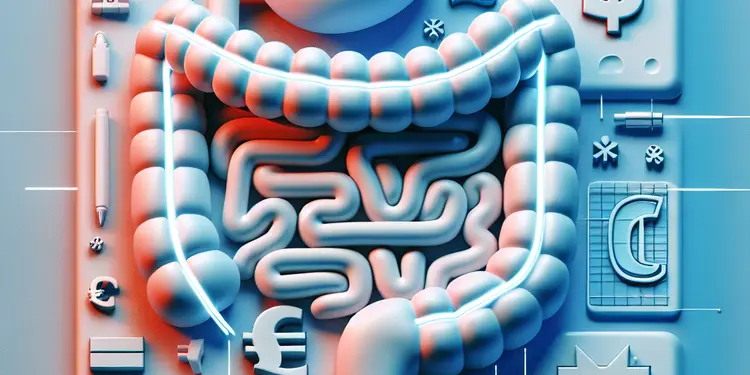
Are there specific gut-related diseases that become more common with age?
Relevance: 41%
-

What are the symptoms of Marburg virus disease?
Relevance: 41%
-
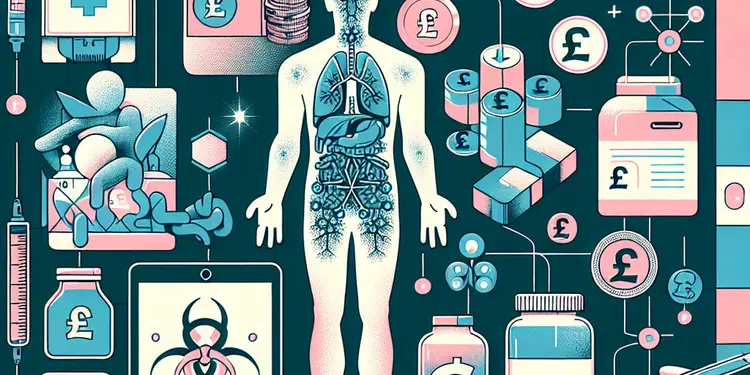
What are the symptoms of flesh-eating disease?
Relevance: 41%
-

What symptoms should I watch for if I suspect a mosquito-borne disease?
Relevance: 40%
-
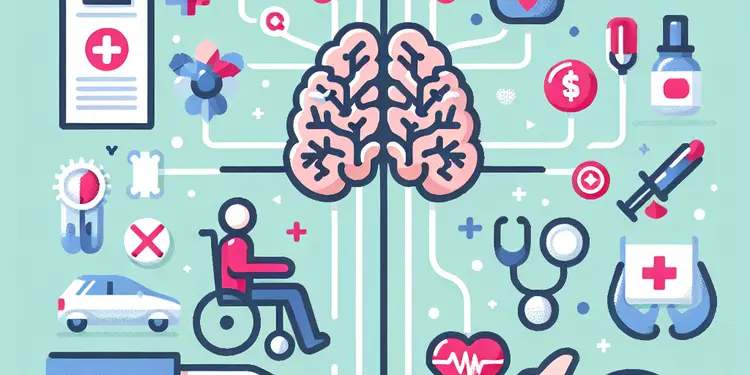
What are the primary symptoms of motor neurone disease?
Relevance: 40%
-

What are common symptoms of meningitis?
Relevance: 39%
-
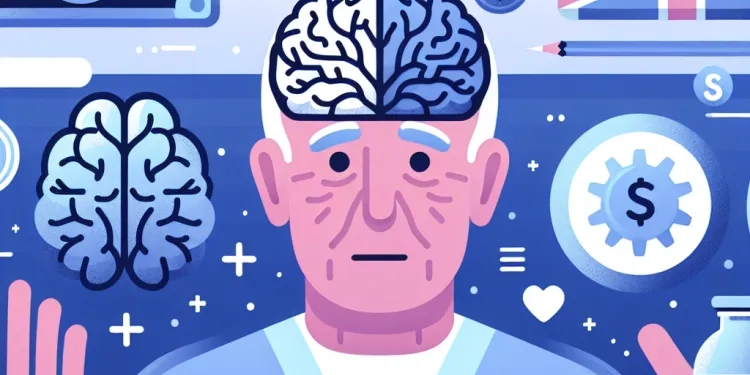
What are the symptoms of Alzheimer's disease?
Relevance: 39%
-

What are the common symptoms of lupus in children?
Relevance: 39%
-

What are the common symptoms of a cold?
Relevance: 37%
-

At what age do symptoms of Huntington's disease typically appear?
Relevance: 37%
-

What are common symptoms of menopause?
Relevance: 37%
-

What are the common symptoms of appendicitis?
Relevance: 37%
-
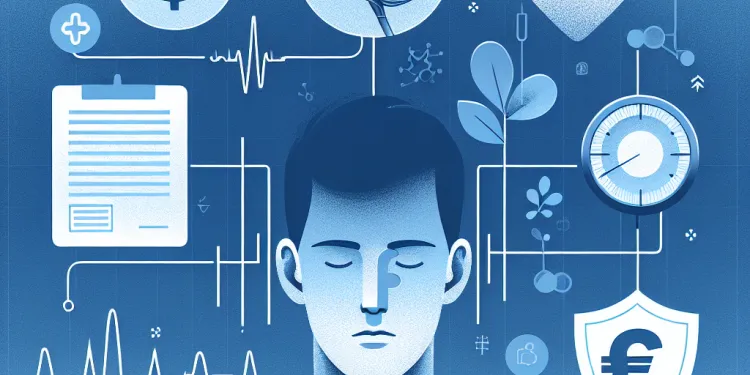
What are common symptoms of a concussion?
Relevance: 37%
-

What are the common symptoms of asthma?
Relevance: 36%
-
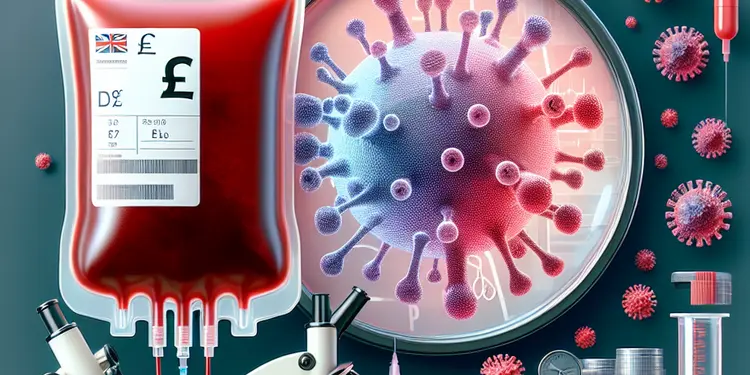
What is the most common disease transmitted by blood transfusion?
Relevance: 36%
-

Where is Lyme disease most commonly found?
Relevance: 35%
-
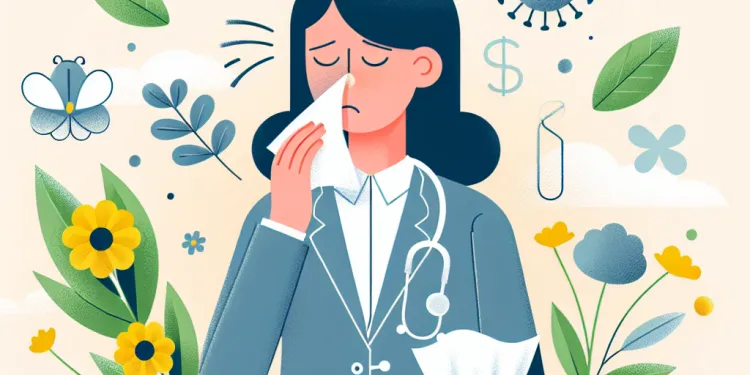
What are the common symptoms of hay fever?
Relevance: 35%
-
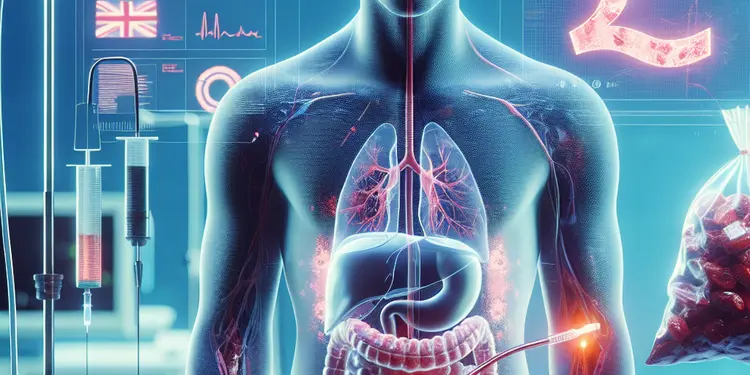
Can flesh-eating disease occur after common surgical procedures?
Relevance: 35%
Common Symptoms of Crohn's Disease
Crohn's disease is a chronic inflammatory bowel condition that affects millions worldwide, including a significant number of individuals in the United Kingdom. Understanding its symptoms can be crucial in seeking early treatment and managing the condition effectively. This article explores the usual manifestations of Crohn's disease.
Gastrointestinal Symptoms
Gastrointestinal symptoms are often the most prominent signs of Crohn's disease. Individuals may experience persistent diarrhoea, which can lead to dehydration and weight loss if not managed. Abdominal pain and cramping, usually in the lower right abdomen, are also common. Additionally, some people may notice blood in their stools, which can be alarming and requires medical attention. The inflammation caused by Crohn's can also result in a frequent and urgent need to pass bowel movements.
Systemic Symptoms
In addition to the digestive system, Crohn's disease often affects the entire body, leading to systemic symptoms. Many patients report fatigue, which can be debilitating and affect daily activities. Fever is another possible symptom, indicating active inflammation. As the disease progresses, people may notice significant weight loss due to malabsorption of nutrients and a decreased appetite. These systemic symptoms can have a profound impact on the quality of life, particularly if untreated.
Extraintestinal Symptoms
Crohn's disease can manifest in areas outside the gastrointestinal tract, known as extraintestinal symptoms. People may experience skin issues like rashes, ulcers, or lesions. Joint pain and arthritis are also common, affecting mobility and comfort. Eye inflammation, resulting in redness and pain, can occur in some cases. Moreover, some may develop mouth ulcers, adding to general discomfort. Recognising these symptoms is important for comprehensive treatment as they can affect the overall disease management strategy.
Conclusion
Crohn's disease presents with a variety of symptoms that can extend beyond the gastrointestinal tract. Recognising these symptoms early on is crucial in seeking appropriate medical care and improving outcomes. For those in the United Kingdom experiencing any of these symptoms, timely consultation with healthcare providers is essential for proper diagnosis and management. Understanding these common signs can empower individuals to take proactive steps toward managing their health effectively.
Common Symptoms of Crohn's Disease
Crohn's disease affects the tummy and can make you feel unwell. Many people around the world have it, including in the UK. Knowing the symptoms can help you get the right treatment early. This guide talks about what to look out for if you think you might have Crohn's disease.
Signs in the Tummy (Gastrointestinal Symptoms)
If you have Crohn's, your tummy might hurt a lot. You could have diarrhoea that doesn't go away, which means you might need to go to the toilet often. This can make you lose a lot of water and weight. If your right side of the belly hurts, it might be Crohn's. Sometimes, there can be blood in poo, which needs a doctor to help. The tummy might feel inflamed, making you want to go to the toilet very quickly and often.
Body-Wide Symptoms (Systemic Symptoms)
Crohn's disease can also make your whole body feel unwell. You might feel very tired all the time. Some people get a fever, which means feeling hot and sweaty. You might lose weight because your body isn’t taking in food properly, and you might not feel like eating. All these symptoms can make it hard to do daily activities and can make you feel less well.
Other Symptoms (Extraintestinal Symptoms)
Crohn's disease can also affect other parts of your body. You might get rashes or sores on your skin. Often, people have pains in their joints, which can make moving hurt. Your eyes might get red and sore too. Mouth sores can also happen. These symptoms are important to recognize because they affect your overall health and need the right care.
Conclusion
Crohn's disease has many symptoms that are not only in the tummy. Spotting these symptoms early is very important. If you or someone you know in the UK has these signs, it is important to see a doctor to get help. Knowing these symptoms can help you look after your health better.
If reading is difficult, you can use tools like audiobooks or apps that read text aloud. Pictures and diagrams can also help you understand the information better. Always ask someone for help if there is something you do not understand.
Frequently Asked Questions
What are the common symptoms of Crohn's disease?
The common symptoms of Crohn's disease include persistent diarrhea, abdominal pain, rectal bleeding, weight loss, and fatigue.
How does Crohn's disease affect digestion?
Crohn's disease causes inflammation in the digestive tract, which can lead to digestive issues such as impaired nutrient absorption and frequent bowel movements.
Is weight loss a symptom of Crohn's disease?
Yes, unintended weight loss is a common symptom of Crohn's disease due to malabsorption of nutrients and decreased appetite.
Can Crohn's disease cause fatigue?
Yes, fatigue is a frequent symptom of Crohn's disease, often caused by inflammation, nutrient deficiencies, or a combination of factors.
Does Crohn's disease cause abdominal pain?
Yes, abdominal pain is one of the hallmark symptoms of Crohn's disease, often due to inflammation and bowel irritation.
What are the extraintestinal symptoms of Crohn's disease?
Extraintestinal symptoms can include joint pain, skin rashes, mouth ulcers, and eye inflammation.
Is persistent diarrhea a symptom of Crohn's disease?
Yes, persistent diarrhea is a common symptom and can be frequent and severe, affecting daily life.
How does Crohn's disease affect children and adolescents?
In children, Crohn's disease can lead to growth delays, delayed puberty, and nutrient deficiencies in addition to other common symptoms.
Can Crohn's disease cause rectal bleeding?
Yes, rectal bleeding can occur if the inflammation affects the colon or rectum, leading to blood in the stool.
What are some complications of Crohn's disease?
Complications can include strictures, fistulas, and increased risk of colon cancer, as well as nutritional deficiencies.
Can Crohn's disease symptoms fluctuate over time?
Yes, symptoms can vary and may worsen during flare-ups and improve during periods of remission.
Is nausea and vomiting associated with Crohn's disease?
Nausea and vomiting can occasionally occur, especially if there is a blockage in the bowel or severe inflammation.
Can Crohn's disease affect mental health?
Living with Crohn's disease can lead to mental health challenges, such as anxiety and depression, due to chronic pain and lifestyle impacts.
Does Crohn's disease cause bloating and gas?
Yes, many people with Crohn's disease experience bloating and gas, which can be uncomfortable and embarrassing.
How important is early diagnosis of Crohn's disease?
Early diagnosis is crucial for managing symptoms effectively and preventing complications through appropriate treatment.
What signs show Crohn's disease?
Here are signs that may show Crohn's disease:
- Tummy pain
- Diarrhea (runny poo)
- Feeling very tired
- Weight loss
- Not feeling hungry
- Fever (feeling hot)
Helpful tip: Use pictures or simple drawings to understand these signs better.
Here are some things that can happen if you have Crohn's disease:
- You might have diarrhea a lot.
- Your tummy might hurt.
- You could have bleeding from your bottom.
- You might lose weight without trying.
- You could feel very tired.
If you want more help, you can try:
- Using picture cards to show how you feel.
- Talking to someone who knows about Crohn's disease.
How does Crohn's disease affect digestion?
Crohn's disease is a sickness that makes it hard for the stomach and intestines to work. It can make your tummy hurt and sometimes causes diarrhea. It can also make you feel really tired.
When you have Crohn's, it's hard for your body to take in all the good stuff from food. This is because the disease can make your intestines swollen. This swelling can stop your body from getting the nutrients it needs.
If you think you have Crohn's, talk to a doctor. They can help you with medicine and other ways to feel better. Eating soft foods and keeping a food diary can help you know which foods are good for you.
There are apps that can help track what you eat and how you feel. You can also ask a helper or a friend to join you at the doctor’s visit to help understand what the doctor says.
Crohn's disease makes parts of your tummy sore inside. This can cause problems like not getting enough goodness from your food and needing to use the bathroom more often.
Can Crohn's disease make you lose weight?
Yes, losing weight without trying can happen if you have Crohn's disease. This is because your body might not take in nutrients well, and you might not feel like eating much.
Can Crohn's Disease Make You Feel Very Tired?
Yes, feeling very tired happens a lot to people with Crohn's disease. This tiredness can come from the swelling inside the body, not getting enough vitamins and minerals, or other reasons.
Does Crohn's disease make your tummy hurt?
Yes, tummy pain is a common sign of Crohn's disease. This is when parts of your tummy are swollen and upset.
What signs show up outside the gut in Crohn's disease?
Crohn's disease is an illness that affects the digestive system, but it can also cause problems in other parts of the body. These are called signs outside the gut.
Here is a list of some of these signs:
- Swelling or pain in the joints
- Redness or pain in the eyes
- Skin rashes or bumps
- Tiredness all the time
- Fever or feeling very hot
If you or someone you care for has Crohn's disease and notices these signs, it's important to talk to a doctor.
Recommendations for support:
- Use simple words and short sentences.
- Take breaks when reading.
- Use tools like audiobooks or videos to learn more.
- Ask someone to explain things if they are hard to understand.
Sometimes, people feel sick in other parts of their bodies too. They might have sore joints, itchy skin spots, sore places in their mouths, or eyes that hurt.
Does Crohn's disease cause diarrhea that doesn't go away?
If you have Crohn's disease, you might often have diarrhea that lasts a long time. This can be a symptom of the disease.
If you often have diarrhea and it doesn't go away, it is important to talk to a doctor. They can help you find out what is causing it and give you treatment.
Tools like picture books or videos about Crohn's disease can help in understanding the condition better. If reading is difficult, ask someone to read with you or explain it. Talking with a support group or a healthcare professional can also be very helpful.
Yes, having diarrhea that doesn't go away is common. It can happen a lot and can be very strong, making daily life hard.
How does Crohn's disease affect children and teenagers?
In kids, Crohn's disease can make it hard for them to grow, start puberty later, and not get enough vitamins and minerals. There are also other common symptoms they might have.
Can Crohn's disease make you bleed from your bottom?
Yes, you can have bleeding from the bottom if the inside of your large gut or back passage gets sore. This can make blood appear in your poo.
What problems can Crohn's disease cause?
Crohn's disease can cause some health problems. Here are a few:
- Stomach pain: Crohn's can make your tummy hurt.
- Diarrhea: It can make you need to go to the bathroom a lot.
- Weight loss: You might lose weight because you can feel too sick to eat.
- Feeling very tired: Crohn's can make you feel very sleepy and worn out.
It's good to talk to a doctor if you feel this way. They can help you feel better.
Here is something that might help:
- Use pictures or drawings to understand more about Crohn's.
- Ask someone you trust for help in explaining things.
Trouble from this can include:
- Tight spots in the gut (called strictures).
- Unusual connections in the gut (called fistulas).
- A higher chance of getting colon cancer.
- Not getting enough good stuff from food (called nutritional deficiencies).
Tools that might help:
- Picture dictionaries to learn new words.
- Voice readers to read text out loud.
Do Crohn's disease symptoms change over time?
Sometimes, Crohn's disease symptoms can get better or worse. They might stop for a while and then come back. It is different for everyone.
Using pictures, videos, or apps can help understand this better.
Yes, symptoms can change. They might get worse during bad times called flare-ups. They can get better during good times called remission.
Does Crohn's disease make you feel sick or throw up?
Sometimes you might feel sick and throw up. This can happen if there is a blockage in your tummy or if your tummy is very sore.
Can Crohn's disease affect how you feel?
Yes, Crohn's disease can also make you feel sad or worried. It is important to talk to someone about how you feel. You can tell a family member, a friend, or a doctor. Doing fun activities and relaxing can help too. If you need more help, talking to a counselor might be useful.
Having Crohn's disease can make people feel worried or sad. This is because they might have pain all the time and it can change how they live their lives.
To help with these feelings, talking to someone like a counselor can be good. Drawing or writing in a journal can also help. Remember, it's okay to ask for help when you need it.
Does Crohn's disease make your tummy feel big and gassy?
Here is some help:
- Use pictures to understand better.
- Ask someone to explain using simple words.
- Listen to audio that talks about Crohn’s disease.
Yes, people with Crohn's disease can have a tummy that feels big and full of air. This can feel uncomfortable and might make you feel shy.
Why is it important to find out early if someone has Crohn's disease?
Finding out early means seeing the doctor as soon as you feel sick.
Discovering Crohn’s disease early helps because:
- Doctors can help you feel better sooner.
- You can take medicine to stop it from getting worse.
- Eating healthy foods and seeing your doctor regularly helps.
Here are some things that can help:
- Ask a friend or family member to go to the doctor with you.
- Write a list of your symptoms to show your doctor.
- Use a diary to track when you feel sick and what you eat.
Finding out about an illness early is very important. It helps doctors take care of symptoms better and stop problems before they start. This can be done with the right care and medicine.
Useful Links
This website offers general information and is not a substitute for professional advice.
Always seek guidance from qualified professionals.
If you have any medical concerns or need urgent help, contact a healthcare professional or emergency services immediately.
Some of this content was generated with AI assistance. We’ve done our best to keep it accurate, helpful, and human-friendly.
- Ergsy carfully checks the information in the videos we provide here.
- Videos shown by Youtube after a video has completed, have NOT been reviewed by ERGSY.
- To view, click the arrow in centre of video.
- Most of the videos you find here will have subtitles and/or closed captions available.
- You may need to turn these on, and choose your preferred language.
- Go to the video you'd like to watch.
- If closed captions (CC) are available, settings will be visible on the bottom right of the video player.
- To turn on Captions, click settings .
- To turn off Captions, click settings again.
More Items From Ergsy search
-

What are the common symptoms of Crohn's disease?
Relevance: 100%
-

Is there a cure for Crohn's disease?
Relevance: 79%
-

Is Crohn's disease contagious?
Relevance: 79%
-

How is Crohn's disease diagnosed?
Relevance: 76%
-

What is Crohn’s disease and how is it treated?
Relevance: 75%
-

Is surgery necessary for Crohn's disease?
Relevance: 74%
-

Who is at risk of developing Crohn's disease?
Relevance: 73%
-

Can children develop Crohn's disease?
Relevance: 72%
-

What treatments are available for Crohn's disease?
Relevance: 72%
-

What is the best diet for Crohn’s disease?
Relevance: 71%
-

Are there any complications associated with Crohn's disease?
Relevance: 71%
-

What causes Crohn's disease?
Relevance: 71%
-

Can stress make Crohn's disease worse?
Relevance: 69%
-

How does smoking affect Crohn's disease?
Relevance: 69%
-

What dietary changes can help manage Crohn's disease?
Relevance: 67%
-

What support is available for people with Crohn's disease in the UK?
Relevance: 65%
-

Infliximab infusion (Remicade) for Crohns Disease at Addenbrookes NHS hospital
Relevance: 57%
-

What are common symptoms of Lyme disease?
Relevance: 55%
-

Symptoms of coeliac disease
Relevance: 47%
-

What are the symptoms of Huntington's disease?
Relevance: 43%
-

How common is Alzheimer's disease in the UK?
Relevance: 42%
-

What are the symptoms of sickle cell disease?
Relevance: 42%
-

Are there specific gut-related diseases that become more common with age?
Relevance: 41%
-

What are the symptoms of Marburg virus disease?
Relevance: 41%
-

What are the symptoms of flesh-eating disease?
Relevance: 41%
-

What symptoms should I watch for if I suspect a mosquito-borne disease?
Relevance: 40%
-

What are the primary symptoms of motor neurone disease?
Relevance: 40%
-

What are common symptoms of meningitis?
Relevance: 39%
-

What are the symptoms of Alzheimer's disease?
Relevance: 39%
-

What are the common symptoms of lupus in children?
Relevance: 39%
-

What are the common symptoms of a cold?
Relevance: 37%
-

At what age do symptoms of Huntington's disease typically appear?
Relevance: 37%
-

What are common symptoms of menopause?
Relevance: 37%
-

What are the common symptoms of appendicitis?
Relevance: 37%
-

What are common symptoms of a concussion?
Relevance: 37%
-

What are the common symptoms of asthma?
Relevance: 36%
-

What is the most common disease transmitted by blood transfusion?
Relevance: 36%
-

Where is Lyme disease most commonly found?
Relevance: 35%
-

What are the common symptoms of hay fever?
Relevance: 35%
-

Can flesh-eating disease occur after common surgical procedures?
Relevance: 35%


